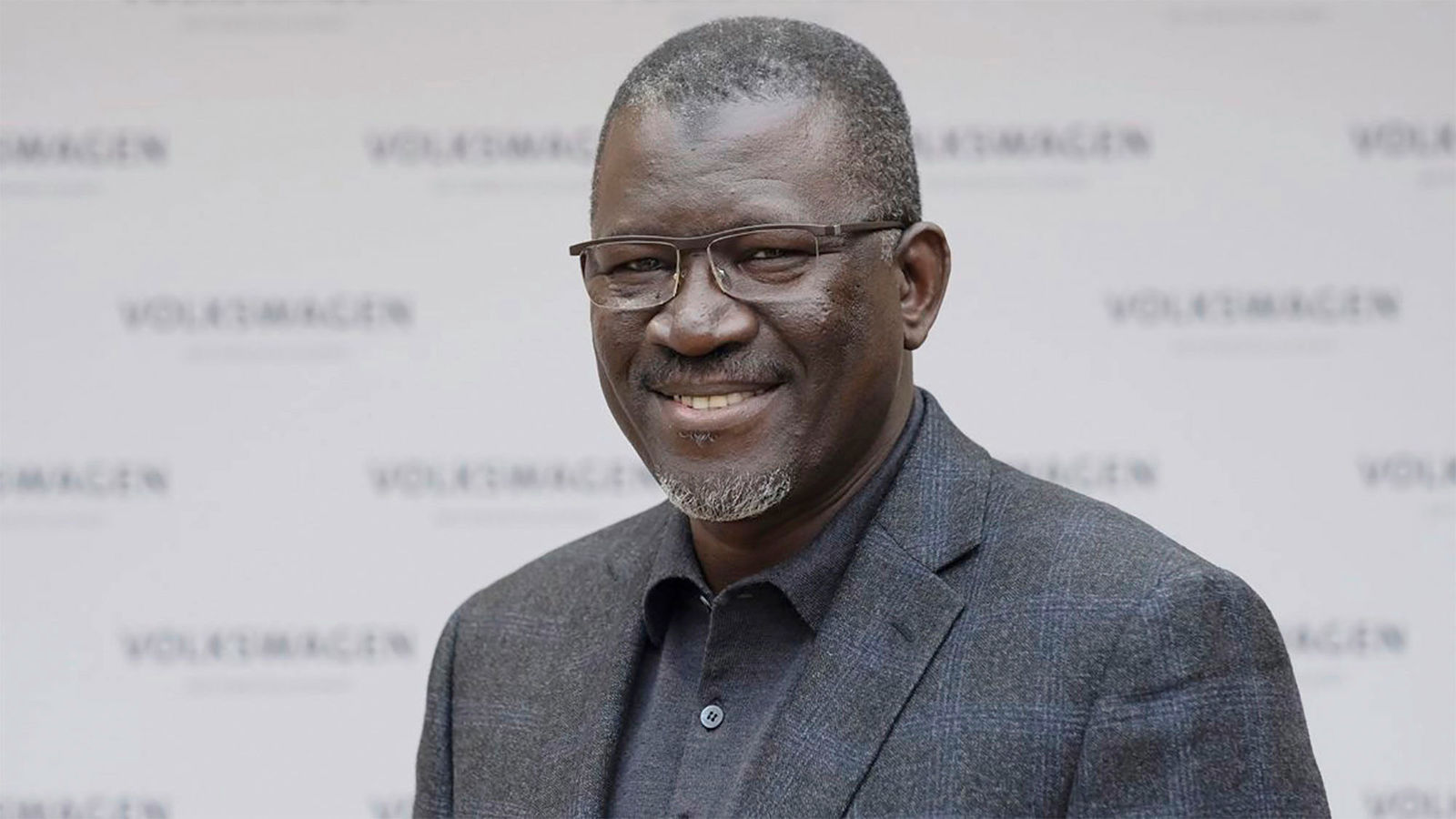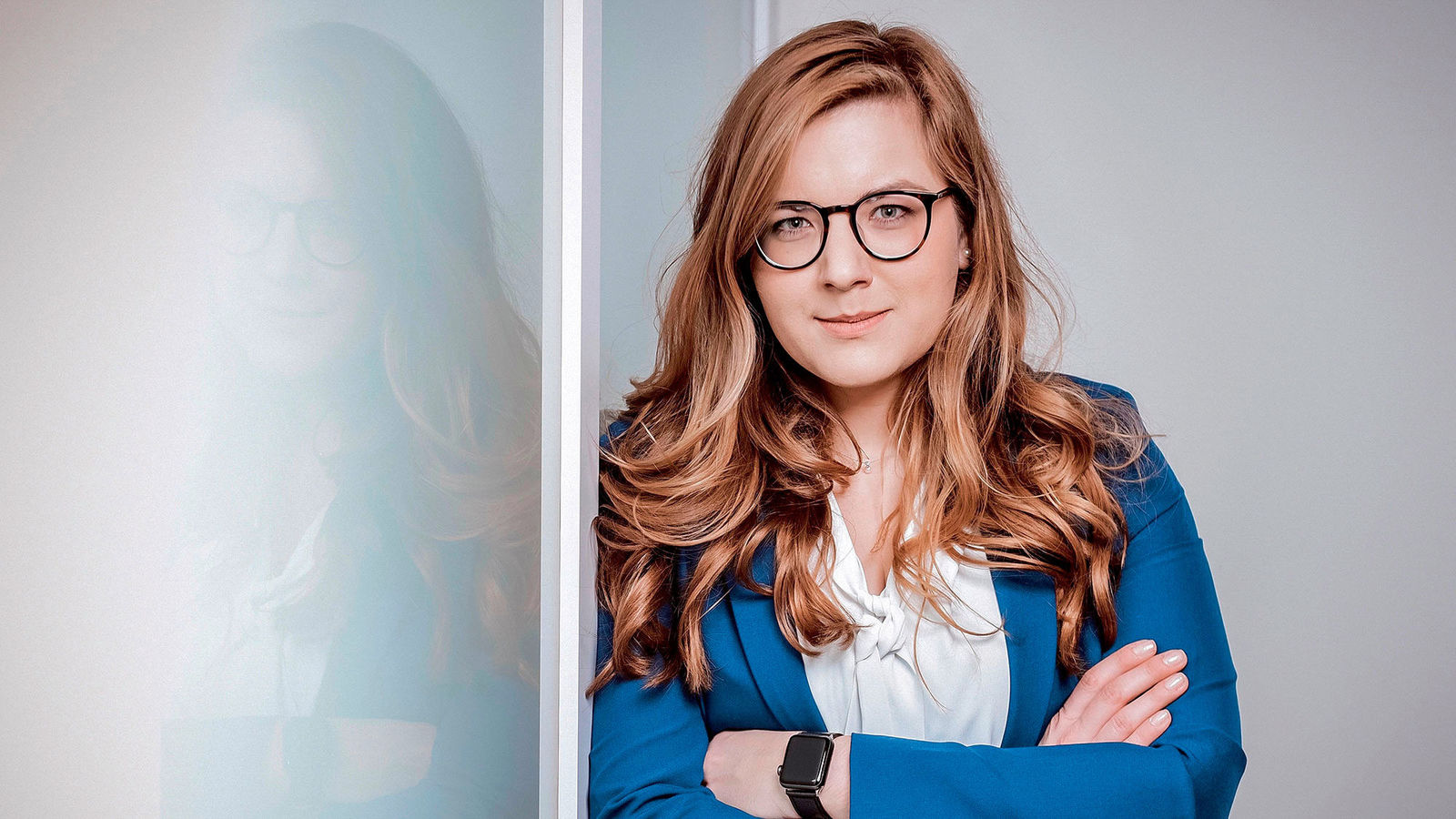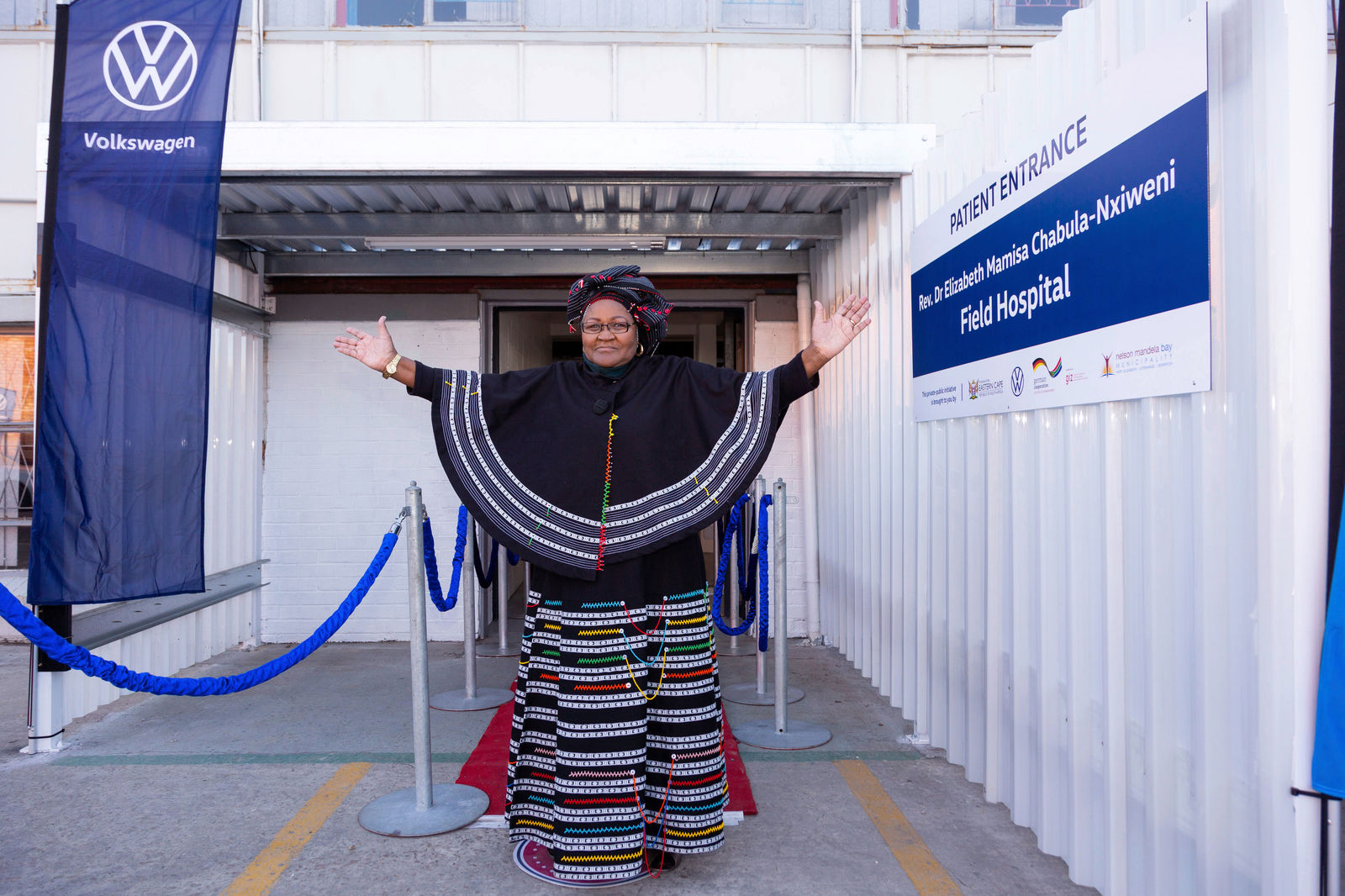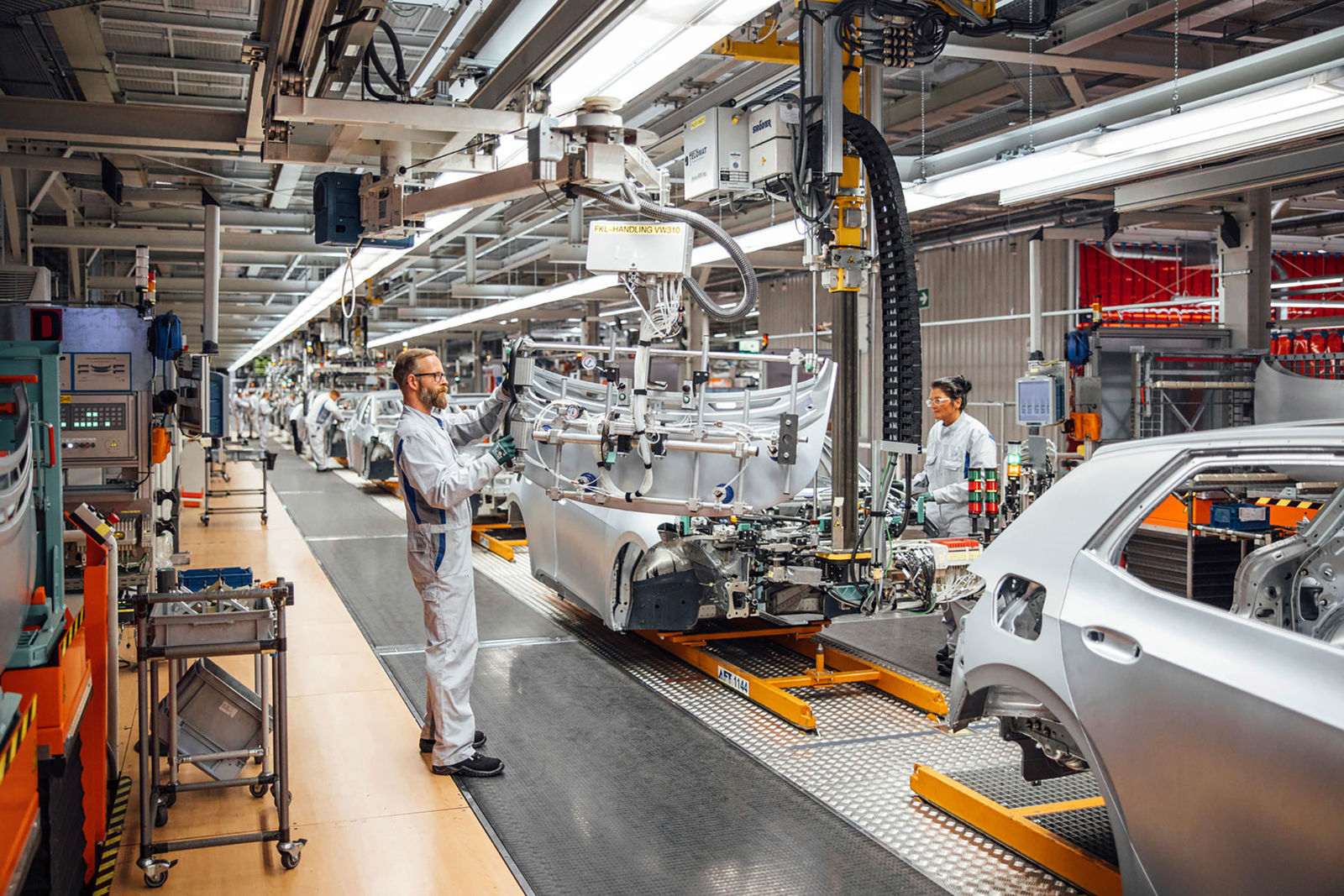“Futures of Ethics”: This is the name of a Volkswagen project that describes challenges for the next two decades. What’s the purpose?
Anne-Kathrin Beugel: As experts from the Future Heads network, we feel jointly responsible for the future of Volkswagen. That is why we are presenting a report that thinks collectively about social, ecological, economic, technological and political developments and describes possible scenarios. In our diverse working team, we had the chance to consider different perspectives. For example, we looked at the consequences of global warming, the use of artificial intelligence, or shifts in political power. By taking a 360-degree view, we want to help identify problems and provide ethically based answers.
Elhadj As Sy: It is important for companies to adapt to changes in good time. It is even more important to influence developments positively. Large companies like Volkswagen in particular can make a decisive contribution when it comes to environmental and climate protection, mobility, equality or gender justice. The commitment of the Future Heads is valuable: It promotes discussion of how Volkswagen can live up to this responsibility and at the same time proposes solutions.
Elhadj As Sy: Volkswagen should be a champion for the environment
Powerful forces such as climate change and digitization are changing the world at a breathtaking pace. During a six-month project, 25 young Volkswagen experts worked out what demands companies will face and what a responsible path into the future might look like. In this interview, Elhadj As Sy, member of the independent Volkswagen Sustainability Council, and Anne-Kathrin Beugel, Volkswagen Future Heads Network, discuss the challenges of 2040. Future Heads involves more than 300 of the company’s employees on topics relating to future mobility and social responsibility.
What do you expect from Volkswagen?
Elhadj As Sy: Volkswagen is on its way to becoming a climate-neutral company. That is good. A group like Volkswagen must aspire to play a leading role in decarbonization. Furthermore, I expect companies to take responsibility for society even in acute crises such as the Corona pandemic. Volkswagen has done this in many ways – including converting a former factory in South Africa into a hospital for Covid-19 patients.
Anne-Kathrin Beugel: It is important to me personally that my employer acts responsibly on social and environmental issues. I share this aspiration with many people of my age. For me, sustainability is not a brake, but a motor. Climate justice in particular offers many opportunities for new areas of business. Let’s think of the circular economy. We have the chance to make our economy climate neutral. It’s high time we took action. That’s what moves my generation.
Elhadj As Sy: This “we can do it” mentality impresses me. Many young people are angry and impatient. They question the status quo. They challenge those in charge. The best example is the Fridays for Future movement. The pressure from younger people is extremely valuable in getting us to do more and act faster.
The pandemic poses major challenges for companies. Do you fear that ethics and sustainability will take a back seat?
Elhadj As Sy: This cannot be ruled out – which is why leadership is needed. Leadership must decide to be part of the solution – even if it is difficult. I’m counting on Volkswagen to act in this way. But let’s not kid ourselves: The Corona pandemic will not be the last crisis. There will be climate shocks, environmental shocks, new diseases. Whether these shocks turn into disasters depends on how well-prepared players like Volkswagen are. They must recognize warning signs and react to them. This works best in a culture where employees support and trust one another.
Anne-Kathrin Beugel: In the pandemic, digitization is accelerating massively. Many people work from home and meet their friends online. I don’t see this as a cause for concern for our social relationships, because our need for community is strong and will remain strong. It’s different in the world of work: When we advance new technologies, we always have to consider the consequences for employees and customers. This also applies to the automotive industry. I think it’s good that Volkswagen takes this responsibility seriously. I even have the feeling that ethics and sustainability are becoming increasingly important within the company.
How do you create a culture in which ethics don’t fall by the wayside?
Anne-Kathrin Beugel: The road to a good corporate culture is long. It takes the right regulations and the right attitude. At my workplace in Integrity and Legal Affairs, I try to make a small contribution. Our goal is to make ethics and integrity an integral part of all decisions. From the production employee to the board member. I am convinced that integrity is an important success factor for any company. In the future, people will only want to work in a healthy and transparent corporate culture.
Elhadj As Sy: It all starts with satisfied employees – even before you start talking about corporate culture to the outside world. It’s a long road, with potholes and hurdles along the way. You have to be aware of this in order to avoid them. It requires openness, critical debates and corrections when necessary.
What is the role of the independent Volkswagen Sustainability Council?
Elhadj As Sy: The Sustainability Council challenges management, it discusses, it criticizes. We talk about ethics, corporate governance, mobility and decarbonization. I am glad that Volkswagen’s management is taking up this challenge. That is the motivation for me to continue my work on the Sustainability Council. In our globalized world, no company can survive if it closes itself off and does not reflect upon the consequences of its actions. Only open companies are successful companies.
Anne-Kathrin Beugel: A good example at Volkswagen is the stakeholder dialog involving independent thinkers. In these exchanges, I sense the courage to rethink business and explore new possibilities. Society rightly expects large companies to address social issues, take responsibility and offer solutions.
Elhadj As Sy: It’s a win-win situation. In the past, social commitment was often seen as a contribution to a better image. But it is much more! CSR (corporate social responsibility) influences society for the better. And more importantly for companies, it motivates employees. If companies are not able to attract the next generation of experts, they will fall behind the competition.
(Note: At the Stakeholder Dialog, Volkswagen executives regularly exchange views with external stakeholders on sustainability issues. Stakeholders include business partners, suppliers, NGOs, and representatives from science, research, politics, associations and sustainable capital markets).
What do responsible companies need to achieve by 2040?
Anne-Kathrin Beugel: They have to conduct future research, constantly question their business model and flexibly adapt to new trends – even if it’s uncomfortable. They have to think holistically and create new solutions – as Volkswagen is doing with electromobility. And the most important point: They need to build a global network of partnerships in which they share experiences for a better future. Together, companies can achieve much more than they can alone.
Elhadj As Sy: In the case of e-mobility, I would add: Companies like Volkswagen must take responsibility for ethical standards throughout their supply chain – from raw material extraction in African mines to vehicle manufacturing. And: Volkswagen should not only act ethically itself, but positively influence and encourage others. This applies, for example, to discussions with national governments and the EU. Being a pioneer in decarbonization must be part of the company’s DNA. Volkswagen should be a champion for the environment.
The interviewees:
Elhadj As Sy is chairman of the board of the Kofi Annan Foundation and co-chair of the WHO/World Bank Global Pandemic Preparedness Monitoring Board (GPMB). He was Secretary General of the International Federation of the Red Cross and Red Crescent Societies (IFRC) – the world’s largest humanitarian network. Prior to that, he spent more than 25 years in senior positions with international organizations, including the UN Children’s Fund (UNICEF). He has been a member of Volkswagen’s independent Sustainability Council since 2016. The Council is made up of renowned representatives from business, politics, science and civil society. They advise the company on the topics of sustainable mobility and environmental protection, social responsibility and integrity, and the future of work and digitalization.
Anne-Kathrin Beugel (27) has been employed at Volkswagen for nine years. After completing her logistics studies, she worked in supply management and strategic procurement. For the past year, she has been working in the Integrity and Legal department of the Board of Management on the implementation of the Together4Integrity program. In 2018, she earned a management degree from AKAD University Stuttgart. She has been part of the Future Heads network since 2019. The network consists of more than 300 young experts from many departments and regions of the Volkswagen Group. They are involved in topics including future mobility, transformation and social responsibility.
More on the subject
Media




Media contact
